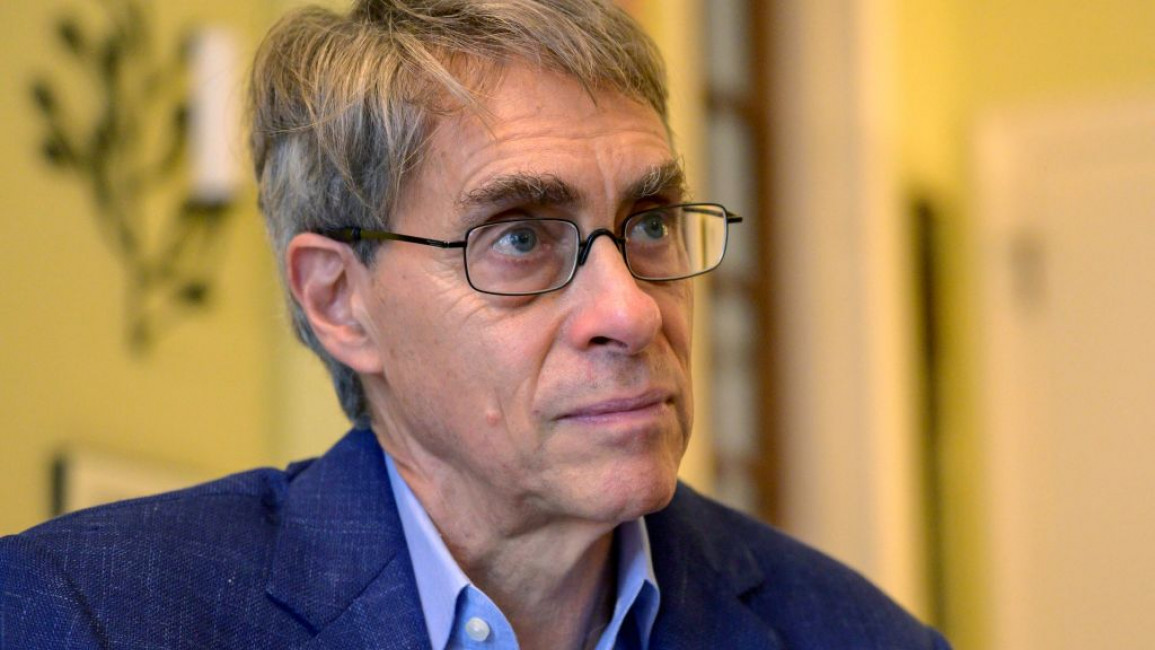HRW expresses 'concern' to Harvard after ex-director says fellowship denied over 'Israel criticism'
Human Rights Watch (HRW) has expressed "concern" in a letter to Harvard University after its former executive director said he lost a fellowship offer over his criticism of Israel.
Kenneth Roth had been recruited to join the Harvard Kennedy School's Carr Center for Human Rights Policy as a fellow, an offer he accepted.
But a few weeks later, in July, Roth said the centre called and told him that the dean of the school, Douglas Elmendorf, had not approved it. Roth said he wasn't given a reason but believes it was due to his and HRW's criticism of Israel.
HRW's letter said Harvard's decision to block Roth "due to his criticism of the Israeli government" will have a "lasting impact on scholars and activists, particularly Palestinians, who should not have to fear professional repercussions from Harvard University or another institution if they write or speak critically about the Israeli government".
"More profoundly, the vetoing of Mr. Roth's fellowship because of his important work on a specific country sends a chilling message to all scholars and advocates, whatever part of the world they research, that Harvard University may not judge them by the quality of their work, but rather on the say-so of well-funded detractors," it added.
The HRW letter was sent by acting executive director Tirana Hassan to Harvard president Lawrence Bacow. Incoming university president Claudine Gay and Elmendorf were Cc'd. The letter was published on HRW's website on Tuesday.
"Sadly, Dean Elmendorf's decision belittles the Harvard Kennedy School diversity statement, which affirms: 'The Kennedy School actively pursues the expansion and maintenance of an atmosphere that welcomes new ideas - even unpopular and controversial ones - and encourages an effective and active exchange of views in an environment of mutual respect,'" the letter said.
The letter added that the Kennedy School stopping Roth from joining the Carr Center "because of his work" will "doubtlessly have repercussions for academic freedom throughout Harvard University".
On Monday, The Associated Press quoted Roth as saying: "This is a shocking violation of academic freedom.
"I don't understand how an institution that purports to address foreign policy, that even has a human rights policy center, how can it possibly avoid criticism of Israel."
Roth, who spent nearly 30 years as executive director of HRW, announced his retirement in April.
Writing to the @Harvard president, Lawrence Bacow, @HRW fears that the @Kennedy_School dean's veto of my human rights fellowship because of my criticism of Israel will make academics "fear professional repercussions" if they criticize Israel.https://t.co/qd9652jlv7 pic.twitter.com/S6R1s9g0Df
— Kenneth Roth (@KenRoth) January 10, 2023
A son of a Jewish refugee from Nazi Germany, he acknowledges that his work has made him enemies around the world.
In a brief conversation with Elmendorf before his fellowship was denied, Roth said he told the dean that he had been sanctioned by the Russian and Chinese governments and "was pretty sure the Israeli government detests me. That turned out to be the kiss of death".
Over the years, HRW has issued a number of reports saying that Israel appears to have committed war crimes against Palestinians. In 2021, it found that Israel was engaging in apartheid against Palestinians.
Other Palestinian, Israeli and global rights groups, including Amnesty International, also consider Israel to be perpetrating apartheid.
In a statement reported by the AP on Monday, before HRW published the letter on its website, the Harvard Kennedy School said that Elmendorf "decided not to make this fellowship appointment, as he sometimes decides not to make other proposed academic appointments, based on an evaluation of the candidate's potential contributions to the Kennedy School".
The director of the Carr Center, Mathias Risse, called the decision a "profoundly sad moment" for him personally.
"My subsequent conversation with Ken Roth to explain this decision to the extent I could was one of the lowest moments in my professional life," he said in a statement that was sent to the Carr Center community and shared with the AP.
Kathryn Sikkink, the Ryan Family Professor of Human Rights Policy at the Kennedy School, said that Elmendorf told her that "they would not approve the fellowship because they considered HRW and Roth to have an anti-Israel bias".
"I have seen no credible evidence whatsoever that HRW or Ken Roth are biased against Israel. I consider this misinformation, and for people who know better, actual disinformation," she added.
Agencies contributed to this report.



